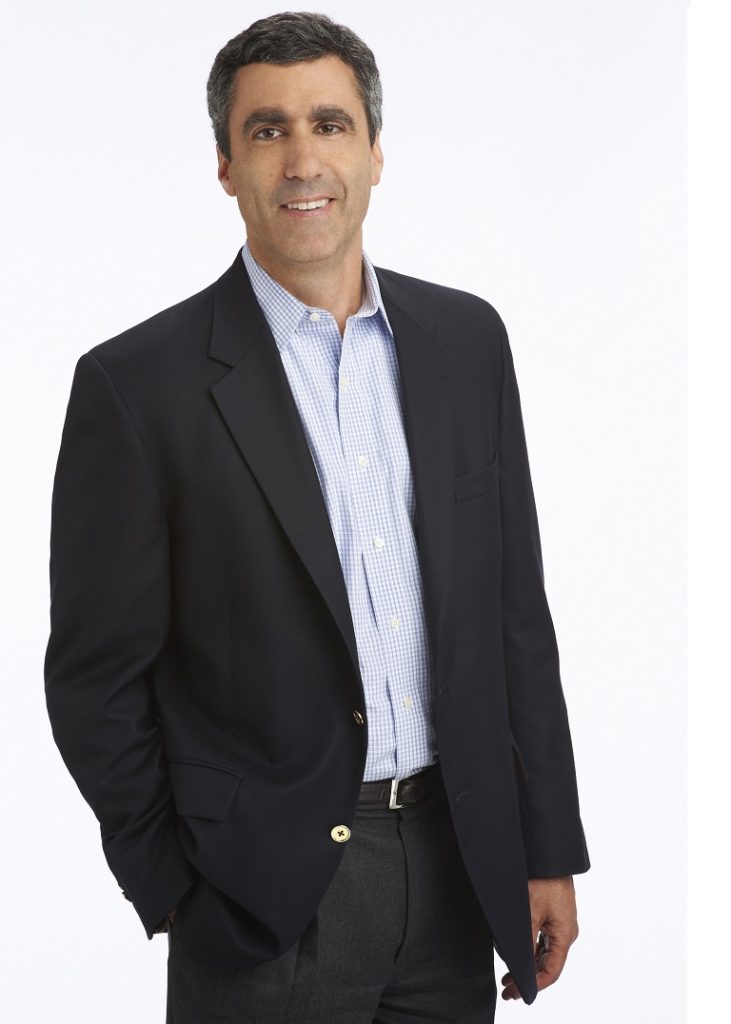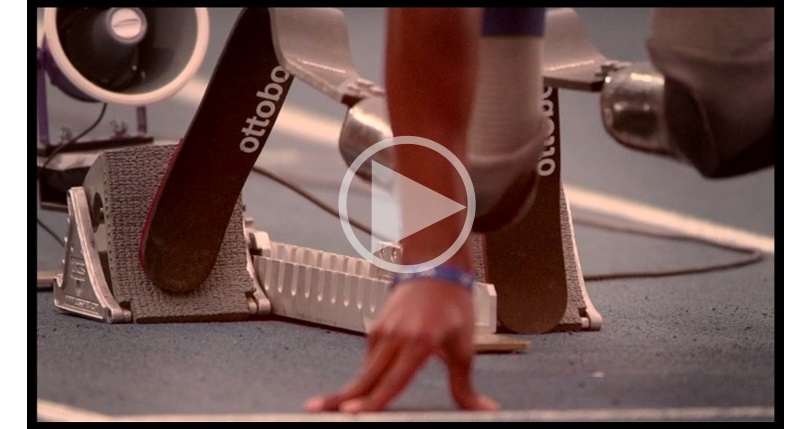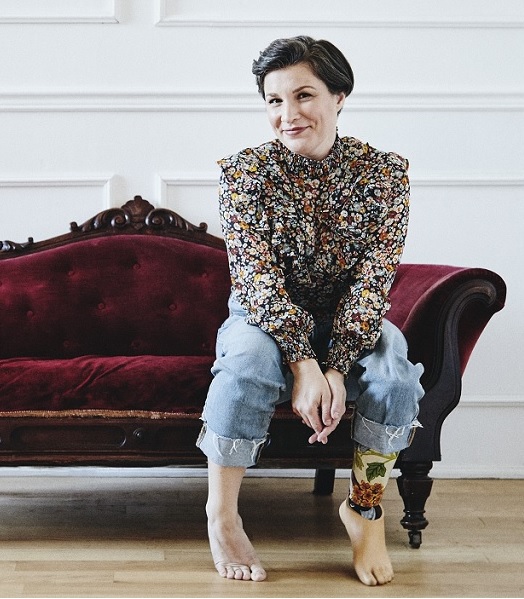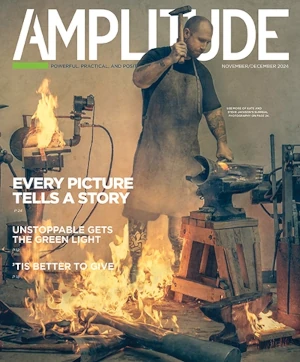In an exclusive interview, NBC Olympics president Gary Zenkel discusses the trends driving the network’s beefed-up coverage of the Tokyo Paralympic Games.
NBC’s math is slightly off for today’s launch of the 100-day countdown to the Tokyo Paralympics. We’re actually 99 days out from the Opening Ceremonies, not 100. But it wouldn’t have made sense to commence the 100-day count yesterday, on a Sunday morning, when nobody’s watching TV; and “99-day countdown” doesn’t really cut it. So 100 days it is. Just go with it.
The truth is, NBC’s countdown to these Paralympics began many years ago. Gary Zenkel, the president of NBC Olympics since 2005, says the network has long sought to unlock the Paralympics’ vast audience potential in the United States. Viewers in most other countries have caught on already—more than 4.1 billion people worldwide tuned in for the last Summer Paralympics in Rio five years ago. But in the American market, audience trends and advertiser commitment have never gelled to the point that would drive major coverage of the Games. The numbers just haven’t been there.
Until now. In Tokyo, the Paralympics are finally getting the US coming-out party NBC has long wanted to throw. The network will devote vastly more hours of airtime to this year’s Games, in higher-profile slots, than ever before. Today’s 100-day kickoff features high-profile Paralympic hits on the Today show and NBC Nightly News, an interview with International Paralympic Committee president Andrew Parsons, plus a splashy announcement of the on-air talent that will cover the Games from Tokyo. Next month’s U.S. Paralympic Team Trials will get extra attention from NBC, too.
This is not just a sports story or a broadcasting story. It marks a significant cultural shift in the way disability is portrayed and perceived in this country. More important, it marks a change in the way disability is valued. NBC and its Paralympic advertisers—including global heavyweights such as Toyota, Nike, and Eli Lilly—are placing a multi-gazillion-dollar bet that an event starring adaptive athletes can hook an American audience large enough to return a profit on a massive infusion of media resources.
When players at this level shove that many chips into the center of the table, you know they really like the cards in their hand. Zenkel plays his pretty close to the vest, but he did give Amplitude a peek at some of the tells that convince him the Paralympics are a jackpot waiting to happen. We think it’s going to be an exciting summer. Our conversation is lightly edited for clarity.

President, NBC Olympics
What’s most exciting to you about the opportunity to increase NBC’s focus on the Paralympics? What are you most looking forward to?
Getting the Paralympics into NBC’s prime-time hours will put this incredible event and these incredible athletes in front of a broader audience. The Paralympics has been [aired] on NBC in prior Paralympic Games, but not in prime time. As you know, that’s when most of us here in the United States gather to watch, especially around big events, so the reach of NBC in prime time is greater, which means there’s a great opportunity to tell these stories and showcase these athletes to a broader audience. It’s a big step for this event. My hope is it’s the beginning of more and more coverage of the Paras on NBC in prime time. And that will ultimately be determined by its success and by the interest of sponsors and advertisers to participate with us in growing this event.
I’m curious what indicators are telling you that now is the right time to move the Paralympics into prime time and increase the overall coverage across all of NBC’s channels. Is there audience data that you’re looking at? Is sponsor demand driving it?
It’s the latter, sponsor demand. But let me back up. As somebody who’s been around the Olympics and the Paralympics for a long time, it was never lost on any of us how compelling Paralympic sports, Paralympic athletes, and their stories are. The Olympics is first and foremost a series of sports competitions, but for the American audience, it’s also equally about the incredibly compelling stories of these very relatable, amazing athletes. And the Paralympics is exactly that, and in some cases more so, in terms of how compelling the stories can be. [We recognized that appeal] many iterations of the Paralympics ago.
What has changed is interest from the commercial side in investing along with us in growing this event—the profile of the event, the interest in watching it. And that is coming before the event itself has delivered big television audiences. That’s what we needed. And that started with Toyota.
Toyota is a global Olympic sponsor and a very significant advertiser in the Olympics. When they came to us—and this was after they had become a global sponsor—they said, “The Paralympics is as important to us, if not more important, than the Olympics.” And they wanted to know that we were going to stand behind that interest with more and more coverage. We have worked side by side with them, dating back to Rio, in creating more Paralympic opportunities on our air and on our platforms.
Now others are investing in the Paralympics with them. And of course there’s a little bit of a chicken-and-egg, in terms of demonstrating that there’s an audience so that we can then go raise advertising from sponsors. Toyota came along before we had demonstrated a large audience and said, “We want you to put it out there. We’re going to support you. We’re going to work with you to grow this event and showcase the stories of these amazing athletes.” That has been the catalyst, and we are off and running.
The Jessica Long Super Bowl commercial, which made such a huge impact, had to be heartening to you from an audience development perspective. I’m wondering if it moved the needle at all for advertisers in terms of their perceptions of the audience potential for the Paralympics.
I don’t know, specifically, if that unbelievable commercial Toyota ran in the Super Bowl specifically generated buying interest from other companies. But [Toyota]’s embrace of the Paralympics and Paralympians no doubt inspired other companies. United Healthcare, Nike, Eli Lilly—these are three other companies that will invest specifically in the Paralympics in Tokyo, along with a few others. I don’t know that you have companies point directly to Toyota, but it has no doubt had an impact. And this has unlocked, for us, the ability to go out and truly expand upon what we have been doing around Paralympic sport and Paralympic athletes.
As you’re planning which Paralympic events will be on NBC in prime time, which will be shown on other NBC channels, and so forth, how much are those decisions driven by the audience appeal for a particular sport versus individual athlete narratives? What’s the interplay of those factors in projecting what will draw an audience and what you want to put into your marquee time slots?
It’s a good question, and I’m not going to give you a complete answer because it’s a work in progress. And, of course, certain things will evolve over time as we get closer and then as the actual events unfold. What I will tell you is, one, the schedule is critical. So, when does the wheelchair basketball gold medal final fall? That is not something that we have a whole lot of influence over, and that’s critical. But [another factor] is the story. The Olympic audience is not your traditional sports audience. It’s at least half female, it’s multi-generational. So it’s about weaving the story together with the competition as we connect an audience with athletes that they aren’t necessarily that connected with.
The magic of the Olympics is the connection that people develop during this multiday event. To put it in the current programming parlance, this episodic reality show plays out over 17 days, or 13 days for the Paralympics. In some cases you feel like you have a sense of where it might go, and in many cases you really have no idea. But it is the stories that emerge. So we will approach these [broadcast] hours with a bias toward the story.
I’ve seen a couple of segments recently on the Today show featuring Paralympic athletes. What other parts of the network will be supporting the effort to build up an audience and to promote what you’re doing with the Paralympics?
The marketing plan was activated months ago, and it has all corners of our company promoting the Paras as well as the Olympics. Peacock, which is the new direct-to-consumer platform, is programming docuseries [about Paralympians] and will cover a select number of Paralympic events this summer. The Today show is incredibly active around Paralympic athletes. I can’t tell you exactly how many segments on NBC Nightly News there will be, but they are also going to pick up stories on the Paralympians as they train and then [compete] during the Paralympics.
And by the way, NBC’s parent company, Comcast, recently renewed their sponsorship of the US Olympic and Paralympic teams through 2028 and announced their sponsorship of LA28. They have essentially wrapped that commitment around the Paralympics with something they call “hashtag Able.” It’s essentially an effort they will lead with the two Olympic parties over the course of the next seven years to develop Paralympic sport and athletes, all leading to the LA Paralympic Games. So they are going to lean in heavily to Paralympic athletes, sport, and the event.
What would success look like for NBC in this round of Paralympic broadcasts? Do you have a target you’re shooting for, whether it’s numbers of viewers or some other measure of cultural impact, that will tell you whether you’ve made the progress you’re looking for?
I won’t give you any specific numbers, because I haven’t thought about it in terms of numbers—meaning ratings. But you know it when you see it in terms of audience engagement. It’s a combination of viewing of those hours, along with a little bit of chatter, discussion, sharing of moments. Every frame of the Paralympics will be available digitally. We don’t need to set ratings records, but it would be great if some of these unbelievably compelling stories resonate and become part of the conversation. And I truly believe they will, especially with the NBC [prime time] hours fueling the conversation.
So I won’t point to any particular metric, but I do feel confident that the stories of these athletes as they evolve and emerge during the Paralympics will be culturally buzzing. And that’s ultimately what we’re looking for.
As I mentioned, LA will be hosting the Paralympics in 2028, and that is the moment that we are building toward. For the event, for the sports, and for these athletes, that will be the watershed moment, and I really look forward to it. I don’t want to get there too fast, because that means I’m getting really old.
I’ve had the same thought.
So we’ll take our time. And we’ve got several games between now and then in which we will continue to build on what we’re doing, build the audience, tell these stories that create the excitement that we know is going to bring [viewers]. And from that day forward, the Paralympics will remain one of the biggest events on the calendar, every two years. That’s the goal and the ambition, and there’s a great deal of confidence here that it will be achieved.





